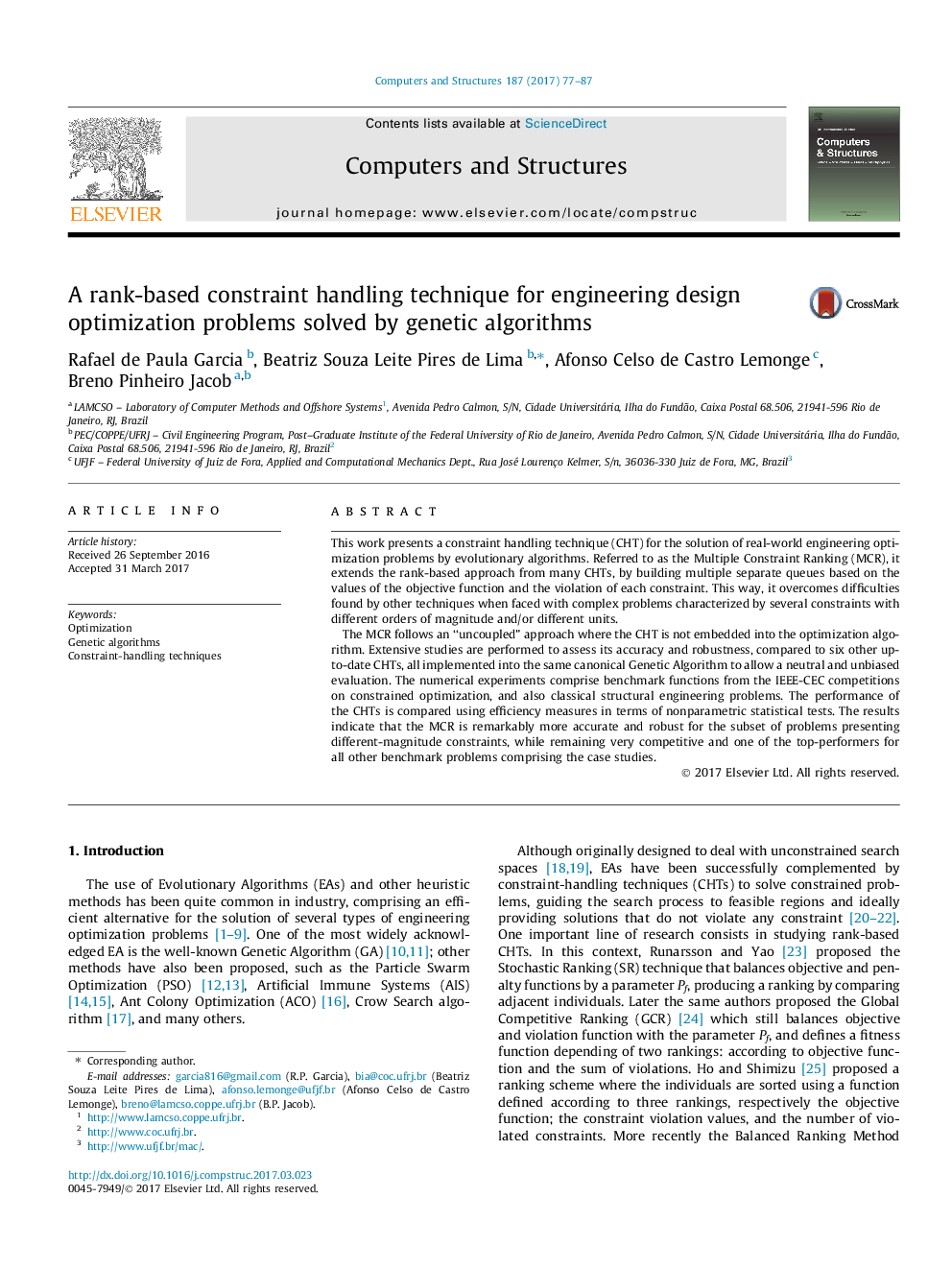| Article ID | Journal | Published Year | Pages | File Type |
|---|---|---|---|---|
| 4965707 | Computers & Structures | 2017 | 11 Pages |
Abstract
The MCR follows an “uncoupled” approach where the CHT is not embedded into the optimization algorithm. Extensive studies are performed to assess its accuracy and robustness, compared to six other up-to-date CHTs, all implemented into the same canonical Genetic Algorithm to allow a neutral and unbiased evaluation. The numerical experiments comprise benchmark functions from the IEEE-CEC competitions on constrained optimization, and also classical structural engineering problems. The performance of the CHTs is compared using efficiency measures in terms of nonparametric statistical tests. The results indicate that the MCR is remarkably more accurate and robust for the subset of problems presenting different-magnitude constraints, while remaining very competitive and one of the top-performers for all other benchmark problems comprising the case studies.
Related Topics
Physical Sciences and Engineering
Computer Science
Computer Science Applications
Authors
Rafael de Paula Garcia, Beatriz Souza Leite Pires de Lima, Afonso Celso de Castro Lemonge, Breno Pinheiro Jacob,
